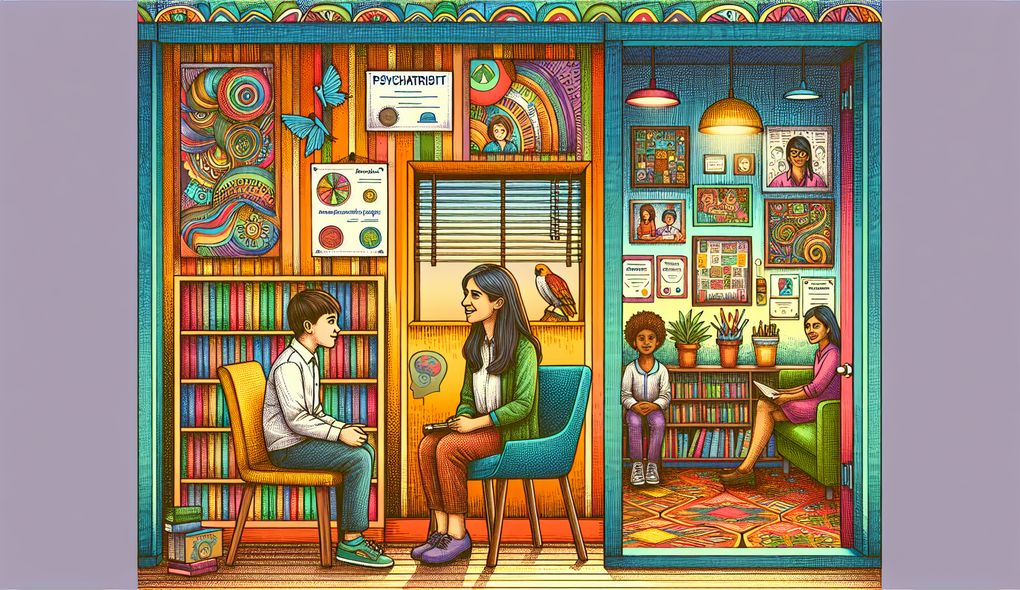How do you coordinate care with other healthcare professionals involved in the treatment of your patients?
SENIOR LEVEL

Sample answer to the question:
In coordinating care with other healthcare professionals, I prioritize effective communication and collaboration. I regularly attend interdisciplinary team meetings to discuss patient cases and share information. I also utilize electronic medical records to ensure that all providers are up-to-date on each patient's treatment plan, progress, and any changes in medications. Additionally, I maintain open lines of communication with psychologists, social workers, and counselors involved in a patient's care, regularly consulting with them to discuss interventions, progress, and any necessary adjustments to the treatment plan.
Here is a more solid answer:
Coordinating care with other healthcare professionals is essential in providing comprehensive treatment for my patients. I actively engage in interdisciplinary team meetings to discuss cases and collaborate on treatment plans. I ensure effective communication by utilizing electronic medical records to share updates and changes in medications. For example, when working with a psychologist, I regularly consult with them to discuss the patient's progress in therapy and any necessary adjustments to the treatment plan. I also prioritize building strong relationships with social workers and counselors involved in a patient's care, as their input and interventions are crucial to the overall well-being of the patient. By collaborating closely with other professionals, we can provide holistic care that addresses not only the medical aspect but also the psychological and social needs of the patients.
Why is this a more solid answer?
The solid answer provides specific examples of how the candidate coordinates care with other healthcare professionals and demonstrates their interpersonal skills, clinical judgment, knowledge of child and adolescent psychiatry, collaboration, and communication. The answer elaborates on the candidate's experiences and emphasizes the importance of holistic care.
An example of a exceptional answer:
As a Child and Adolescent Psychiatrist, I understand the importance of a multidisciplinary approach in providing comprehensive care to my patients. I proactively engage in regular meetings with psychologists, social workers, and counselors to establish a collaborative environment and ensure continuity of care. For instance, when developing a treatment plan, I consult with the psychologist to integrate therapy techniques that complement the pharmacological interventions. I also foster strong relationships with community resources, such as schools and support groups, to address the social aspects of my patients' lives. This collaborative approach allows me to tailor treatment plans and advocate for my patients' needs effectively. Moreover, I stay updated on the latest research and advancements in child and adolescent psychiatry to provide evidence-based care. By integrating the expertise of various healthcare professionals, we can optimize the outcomes and well-being of our patients.
Why is this an exceptional answer?
The exceptional answer provides a comprehensive and detailed description of how the candidate coordinates care with other healthcare professionals. It demonstrates their ability to integrate different therapeutic approaches, collaborate effectively, and utilize community resources. The answer also highlights the candidate's commitment to ongoing education and professional development, aligning with the job description's requirement. Overall, the exceptional answer showcases the candidate's expertise and dedication to providing optimal care for their patients.
How to prepare for this question:
- Familiarize yourself with different therapeutic approaches commonly used in child and adolescent psychiatry.
- Research the role of other healthcare professionals in the field and their contributions to comprehensive care.
- Reflect on your past experiences collaborating with other professionals and be prepared to discuss specific examples.
- Stay updated on the latest research and advancements in child and adolescent psychiatry. Subscribe to relevant journals or attend conferences.
- Practice effective communication skills, such as active listening and clear articulation of ideas and treatment plans.
What are interviewers evaluating with this question?
- Interpersonal Skills
- Clinical Judgment
- Knowledge of Child and Adolescent Psychiatry
- Collaboration
- Communication

